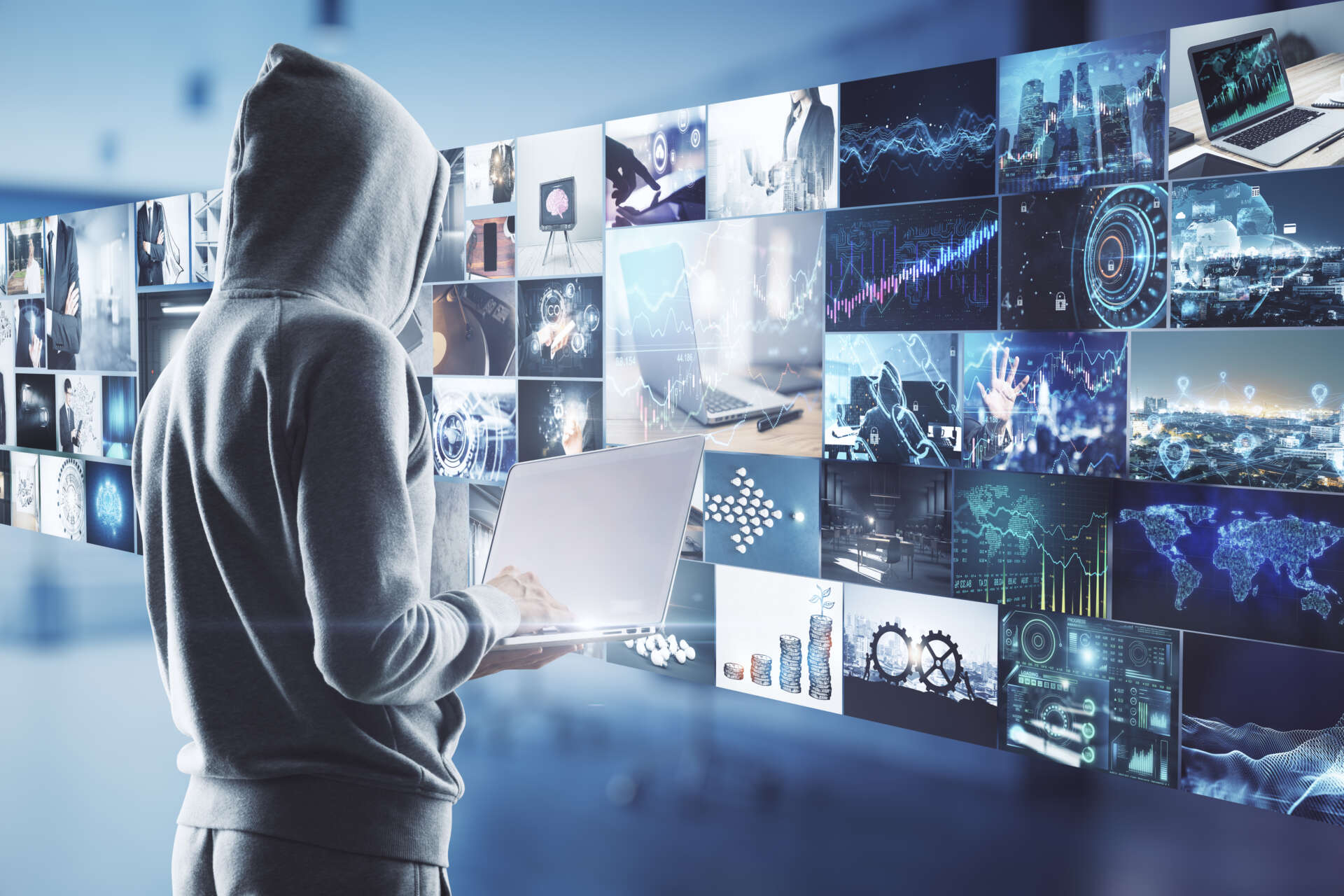Introduction: The Evolving Landscape of Video Marketing
Video marketing has undergone a seismic shift in recent years. What was once a resource-intensive endeavor, reserved for larger corporations with substantial budgets, is now increasingly accessible to businesses of all sizes. This democratization is largely thanks to the rise of artificial intelligence (AI), which is rapidly transforming how videos are created, optimized, and distributed. The integration of AI in video production has opened up new avenues for brands to connect with their audiences, delivering personalized and engaging content at scale. The focus keyphrase, AI video creation boosts brands, encapsulates this transformative power, highlighting how AI is no longer a futuristic concept, but a present-day reality that is reshaping the marketing landscape.
From automating mundane tasks to unlocking unprecedented creative potential, AI is revolutionizing video marketing. It’s not just about cost savings or increased efficiency; it’s about redefining what’s possible in terms of audience engagement and return on investment. Businesses can now leverage AI tools to generate scripts, animate characters, create voiceovers, and even personalize video content for individual viewers. This level of customization was previously unimaginable, but with AI, it’s becoming the new standard. Moreover, AI-powered analytics provide invaluable insights into video performance, allowing marketers to optimize their strategies in real-time and maximize their impact. This data-driven approach ensures that every video contributes to the overall marketing objectives.
As video continues to dominate online platforms, brands must adapt to stay ahead of the curve. Embracing AI video creation is no longer optional; it’s a necessity for businesses seeking to thrive in an increasingly competitive digital environment. The journey may seem daunting, but with the right knowledge and tools, any brand can harness the power of AI to elevate its video marketing efforts and achieve remarkable results. For instance, platforms like WordPress, enhanced with AI-driven plugins, provide a robust foundation for content management and distribution.
Why AI Video Creation Boosts Brands: Increased Efficiency & Scalability
One of the most significant advantages of AI video creation boosts brands is the unparalleled efficiency and scalability it offers. Traditional video production can be a time-consuming and expensive process, often involving multiple professionals and specialized equipment. AI streamlines this process, automating many of the repetitive tasks that previously required manual effort. This allows brands to produce more videos in less time, freeing up resources to focus on other critical aspects of their marketing strategy.
Consider the process of creating a product demo video. Traditionally, this would involve hiring actors, securing a location, filming the footage, and then spending hours editing and post-processing. With AI, much of this can be automated. AI-powered tools can generate realistic product visualizations, create animated explainers, and even add professional-sounding voiceovers. This significantly reduces the time and cost associated with video production, making it feasible for even small businesses to create high-quality videos. For e-commerce businesses using platforms like Magento 2 or WooCommerce, this means they can quickly produce compelling product videos to showcase their offerings and drive sales. High-quality product videos are crucial for online stores.
Moreover, AI enables brands to scale their video marketing efforts more effectively. Instead of being limited by the availability of resources or the complexity of the production process, businesses can leverage AI to create a large volume of videos tailored to different audiences and platforms. This scalability is particularly valuable for companies with a diverse product line or a global customer base. AI can generate variations of a single video to target different demographics, languages, and cultural preferences. This level of personalization was previously unachievable without a significant investment in resources, but AI makes it possible to deliver highly relevant video content to every viewer. Compared to alternatives like Wix, platforms like WordPress offer greater flexibility in integrating AI-powered tools, thus enhancing scalability.
AI sales agents can leverage these videos to personalize outreach, while auto AI blogging can repurpose video content into written form for broader reach. Even AI phone calls can reference specific video elements to create a more engaging customer experience. This interconnectedness is key to maximizing the ROI of AI video creation.
Unlocking Creativity: AI Tools for Scripting, Animation, and Voiceovers
Beyond efficiency, AI is also unlocking new levels of creativity in video marketing. AI-powered tools are available to assist with every aspect of the creative process, from scripting and storyboarding to animation and voiceovers. These tools empower brands to experiment with different styles, formats, and narratives, ultimately leading to more engaging and impactful video content. The phrase AI video creation boosts brands is not just about efficiency; it’s about fostering innovation.
For example, AI can analyze vast amounts of data to identify trending topics and generate compelling scripts that resonate with target audiences. These tools can also help brands overcome writer’s block by providing suggestions for plot points, dialogue, and visual elements. Similarly, AI-driven animation software can create realistic and engaging characters, even for brands without in-house animation expertise. These tools can automate many of the tedious tasks associated with animation, allowing artists to focus on the creative aspects of their work. For brands using WordPress, various plugins can integrate these AI-powered animation tools seamlessly. You can compare WordPress to Wix to see the benefits. See Wix vs. web developers for more.
AI is also revolutionizing the field of voiceovers. AI-powered text-to-speech tools can generate realistic and natural-sounding voiceovers in multiple languages, accents, and styles. This eliminates the need to hire professional voice actors for every video, saving both time and money. Moreover, AI can even personalize voiceovers to match the tone and style of the brand, ensuring a consistent and authentic message. The ability to quickly generate high-quality voiceovers makes it easier for brands to create localized video content for global audiences. Compared to platforms with limited customization options, Magento 2 offers superior integration with AI-powered voiceover tools, enhancing the user experience.
By automating tasks and providing creative inspiration, AI empowers brands to push the boundaries of video marketing. This leads to more innovative and engaging content that captures the attention of viewers and drives results. The accessibility of AI-driven creative tools levels the playing field, enabling smaller businesses to compete with larger corporations in the video marketing arena. Furthermore, AI opens doors to experimenting with entirely new video formats and styles, leading to unique branding opportunities.
Personalization at Scale: Tailoring Video Content with AI
One of the most transformative capabilities of AI in video marketing is the ability to personalize content at scale. Traditional video production often involves creating a single video for a broad audience, which can limit its effectiveness. AI enables brands to tailor video content to individual viewers, delivering a more relevant and engaging experience. This level of personalization can significantly improve engagement rates, brand loyalty, and ultimately, conversions. The core idea behind AI video creation boosts brands is personalized connection.
AI can analyze data from various sources, such as customer demographics, browsing history, and purchase behavior, to understand the preferences and needs of individual viewers. Based on this data, AI can generate personalized video content that addresses their specific interests and pain points. For example, an e-commerce brand can create personalized product recommendations videos based on a customer’s past purchases. Or, a financial services company can create personalized financial advice videos based on a customer’s age, income, and investment goals. This level of personalization is impossible without AI, as it would require a massive amount of manual effort to create individual videos for every viewer.
AI-powered tools can also dynamically adjust video content based on real-time data. For example, a video can display personalized messages based on the viewer’s location, the time of day, or the weather. Or, a video can adapt its content based on the viewer’s interaction with the video, such as their clicks, scrolls, and pauses. This dynamic personalization creates a more interactive and engaging experience for the viewer, leading to higher conversion rates. For businesses leveraging Magento 2, AI-driven personalization can enhance the customer journey, guiding them through the sales funnel with relevant video content. AI sales agents can personalize the Magento 2 experience.
Personalization at scale is not just about improving engagement rates; it’s also about building stronger relationships with customers. By delivering relevant and valuable video content, brands can demonstrate that they understand and care about their customers’ needs. This fosters trust and loyalty, leading to long-term customer relationships. Furthermore, AI-driven personalization can significantly improve the ROI of video marketing campaigns, as it ensures that every video is delivered to the right viewer at the right time.
Data-Driven Optimization: Using AI Analytics to Improve Video Performance
Another critical aspect of how AI video creation boosts brands is its ability to provide data-driven insights into video performance. Traditional video marketing often relies on guesswork and intuition when it comes to optimizing content for maximum impact. AI-powered analytics tools provide brands with a wealth of data on how viewers are interacting with their videos, allowing them to make informed decisions about content strategy, targeting, and distribution.
AI can analyze video data to identify patterns and trends that would be impossible for humans to detect. For example, AI can identify the most engaging moments in a video, the points where viewers are most likely to drop off, and the demographics that are most responsive to certain types of content. This data can be used to optimize future videos for maximum engagement. AI can also analyze viewer sentiment to understand how viewers are feeling about the video content. This can be used to refine the message and tone of future videos to better resonate with the target audience.
AI-powered analytics tools can also track the performance of videos across different platforms and channels. This allows brands to understand which channels are most effective for reaching their target audience and to optimize their distribution strategy accordingly. For example, a brand may discover that their videos perform better on social media than on their website, or that certain types of videos are more popular on mobile devices than on desktop computers. This information can be used to tailor video content to the specific characteristics of each platform and channel. For businesses using WordPress, plugins like Yoast SEO can integrate with AI-powered analytics to provide a comprehensive view of video performance. See Yoast SEO for more information.
By leveraging AI analytics, brands can continuously improve the performance of their video marketing campaigns. This leads to higher engagement rates, increased brand awareness, and ultimately, greater return on investment. The data-driven approach enabled by AI ensures that every video contributes to the overall marketing objectives and that resources are allocated effectively. Furthermore, AI-powered optimization can save brands time and money by identifying underperforming videos and channels, allowing them to focus their efforts on the most promising opportunities.
Case Studies: Real-World Examples of Brands Succeeding with AI Video
The promise of AI video creation boosts brands is not just theoretical; there are numerous real-world examples of companies that have successfully leveraged AI to improve their video marketing efforts. These case studies demonstrate the tangible benefits of AI and provide inspiration for other brands looking to adopt this technology.
Consider the example of a large e-commerce retailer that used AI to create personalized product recommendation videos for its customers. By analyzing customer data and purchase history, the retailer was able to generate videos that showcased products that were highly relevant to each individual viewer. This resulted in a significant increase in click-through rates and conversions. Another example is a financial services company that used AI to create personalized financial advice videos for its clients. By tailoring the content to each client’s specific financial situation and goals, the company was able to build stronger relationships and increase client satisfaction.
Several brands have also used AI to automate the production of explainer videos. These videos are often used to educate customers about complex products or services. By using AI, brands can quickly and easily create high-quality explainer videos that are both informative and engaging. Furthermore, many companies are using AI to generate video content for social media. AI-powered tools can create short, attention-grabbing videos that are perfect for sharing on platforms like Instagram, TikTok, and Facebook. These videos can be used to promote brand awareness, drive traffic to the company’s website, and generate leads. For companies operating on Magento 2, AI can streamline the creation of engaging product videos, leading to higher conversion rates and increased sales. Magento 2 e-commerce can benefit greatly.
These case studies illustrate the diverse range of applications for AI in video marketing. From personalization and automation to creative content generation, AI is helping brands to achieve remarkable results. As AI technology continues to evolve, we can expect to see even more innovative and impactful uses of AI in video marketing in the future.
Overcoming Challenges: Addressing Concerns and Ethical Considerations in AI Video Creation
While the benefits of AI video creation boosts brands are undeniable, it’s important to acknowledge the challenges and ethical considerations associated with this technology. One of the main concerns is the potential for bias in AI algorithms. AI algorithms are trained on data, and if that data is biased, the resulting AI system will also be biased. This can lead to video content that is discriminatory or unfair to certain groups of people. For example, an AI system trained on data that primarily features white actors may struggle to accurately represent people of other races. This is why it’s crucial to carefully vet the data used to train AI algorithms and to ensure that it is representative of the diversity of the target audience. Always ensure your AI algorithms are unbiased.
Another concern is the potential for AI to be used to create fake or misleading video content. Deepfakes, for example, are AI-generated videos that can convincingly impersonate real people. These videos can be used to spread misinformation, damage reputations, or even incite violence. It’s important to be aware of the potential for deepfakes and to take steps to detect and combat them. This includes developing AI tools that can identify deepfakes and educating the public about the risks of this technology. The use of AI in video marketing also raises ethical questions about transparency and authenticity. Should brands disclose when they are using AI to create video content? Is it ethical to use AI to create personalized videos that are designed to manipulate viewers? These are complex questions that require careful consideration.
Transparency is key. Brands should be upfront about their use of AI in video creation and explain how it is being used. This builds trust with viewers and helps to prevent misunderstandings. Furthermore, brands should ensure that their use of AI is aligned with their values and that it does not compromise the authenticity of their message. Platforms like WordPress, known for their commitment to ethical content creation, provide a more trustworthy environment compared to platforms that prioritize profit over ethical considerations. Ultimately, the responsible use of AI in video marketing requires a combination of technical expertise, ethical awareness, and a commitment to transparency. Businesses should consult with experts and stakeholders to develop guidelines and best practices for AI video creation that are both effective and ethical. Managed IT services can ensure ethical compliance. Learn more about ethical considerations.
The Future of Video Marketing: Predictions and Emerging Trends with AI
The future of video marketing is inextricably linked to the evolution of AI. As AI technology continues to advance, we can expect to see even more dramatic changes in how videos are created, distributed, and consumed. The concept that AI video creation boosts brands will only become more pronounced in the years to come.
One emerging trend is the rise of AI-powered video editing. These tools will automate many of the tedious tasks associated with video editing, such as cutting, trimming, and adding transitions. This will allow video editors to focus on the more creative aspects of their work, such as storytelling and visual design. We can also expect to see more sophisticated AI-powered video analytics tools. These tools will provide brands with even deeper insights into how viewers are interacting with their videos, allowing them to optimize their content for maximum impact. Another trend is the development of AI-powered video creation platforms. These platforms will allow anyone to create professional-quality videos without any prior experience. This will democratize video creation and make it accessible to businesses of all sizes.
The metaverse is another area where AI is expected to play a significant role in video marketing. AI can be used to create realistic and immersive video experiences in the metaverse. This will allow brands to connect with their customers in new and engaging ways. For example, a fashion brand could create a virtual store in the metaverse where customers can try on clothes using AI-powered avatars. Or, a travel company could create a virtual tour of a destination where customers can experience the sights and sounds of the location before they book their trip. Platforms that offer robust e-commerce capabilities, such as Magento 2 and WooCommerce, are well-positioned to leverage AI in the metaverse. See the benefits of Magento 2 for e-commerce. The future of video marketing is bright, and AI is poised to play a central role in shaping that future. Brands that embrace AI and learn how to use it effectively will be well-positioned to succeed in the ever-evolving digital landscape. As AI sales agents become more sophisticated, they will play an increasingly important role in delivering personalized video experiences to customers.
Have questions? Contact us here.








Get Social